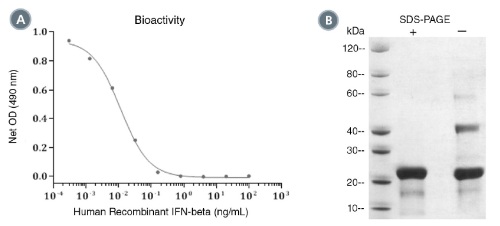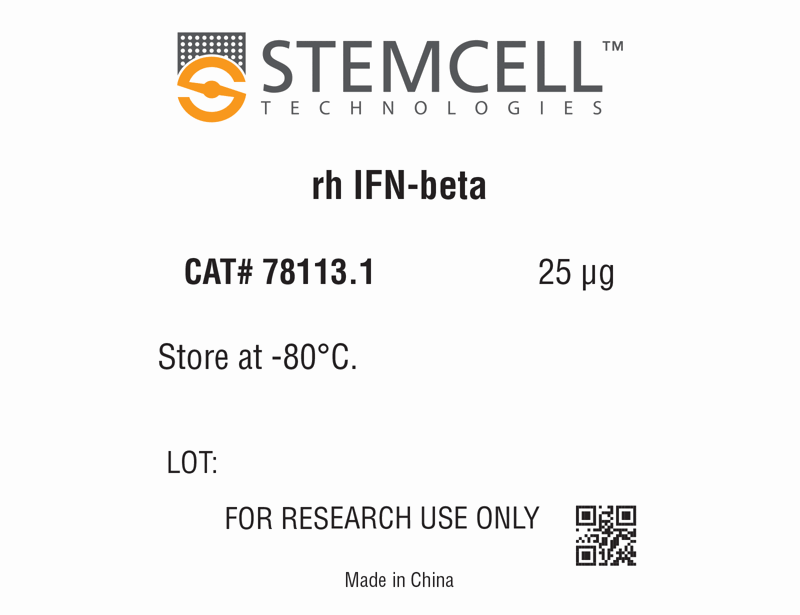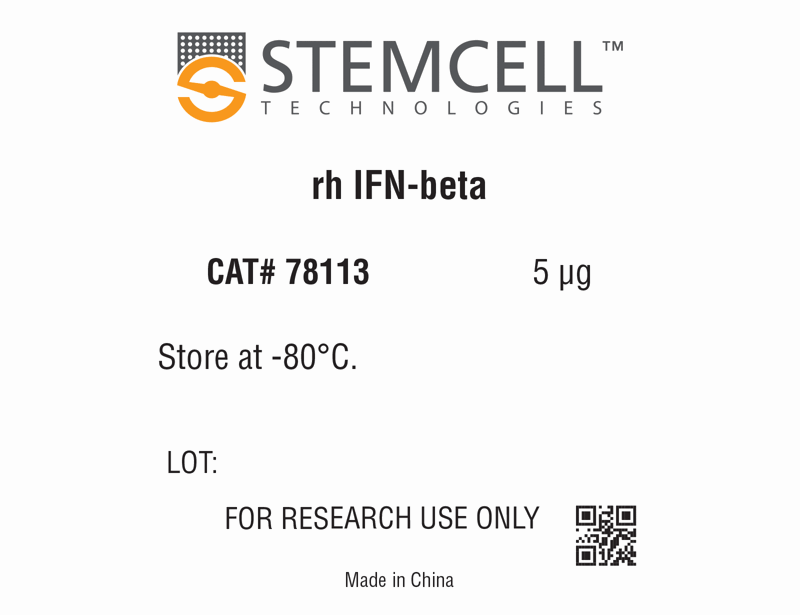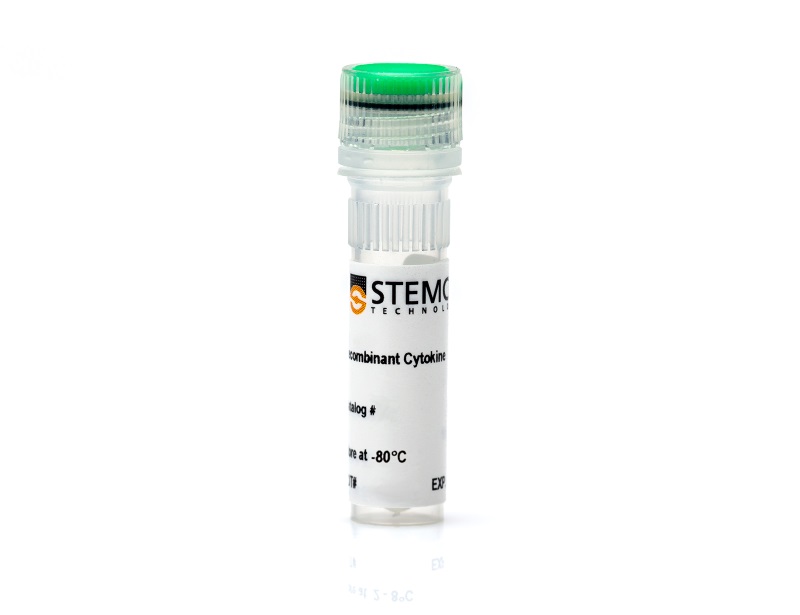Human Recombinant IFN-beta
Interferon-beta
概要
Interferon beta (IFN-β), also known as type I interferon, is produced by fibroblasts, and in smaller amounts by plasmocytoid dendritic cells. Macrophages and endothelial cells secrete IFN-β in response to a viral infection (Reder & Feng). IFN-β binds to a receptor complex composed of IFNAR1 and IFNAR2, and initiates signal transduction via the JAK/STAT pathway; this culminates in the transcription and activation of many genes that control dendritic cell activation, T cell survival, NK cell activation, chemokine expression, lymph node retention, and antiproliferative and antiviral effects (Dunn et al.). IFN-β is a first-line treatment for multiple sclerosis. It suppresses Th17 cells by affecting expression of IL-4, IL-10, and IL-27. IFN-β was also shown to expand regulatory T cells and limit T cell trafficking to the central nervous system (Inoue & Shinohara). Out of the two variants of IFN-β (IFN-β1 and IFN-β3), this product is the IFN-β1 form.
Subtype
Cytokines
Alternative Names
B cell interferon, Fibroblast interferon, IFNB1, Leukocyte interferon, Type I interferon
Cell Type
B Cells, Cancer Cells and Cell Lines, NK Cells, T Cells
Species
Human
Area of Interest
Cancer Research, Immunology
Molecular Weight
20 kDa
Purity
≥ 95%
技术资料
| Document Type | 产品名称 | Catalog # | Lot # | 语言 |
|---|---|---|---|---|
| Product Information Sheet | Human Recombinant IFN-beta | 78113, 78113.1 | All | English |
| Safety Data Sheet | Human Recombinant IFN-beta | 78113, 78113.1 | All | English |
数据及文献
Data

(A) The biological activity of Human Recombinant IFN-beta was tested by its ability to inhibit the proliferation of TF-1 cells. Cell proliferation was measured using a fluorometric assay method. The EC50 is defined as the effective concentration of the growth factor at which cell proliferation is at 50% of maximum. The EC50 in the above example is less than 0.1 ng/mL. (B) 2 μg of Human Recombinant IFN-beta was resolved with SDS-PAGE under reducing (+) and non-reducing (-) conditions and visualized by Coomassie Blue staining.



